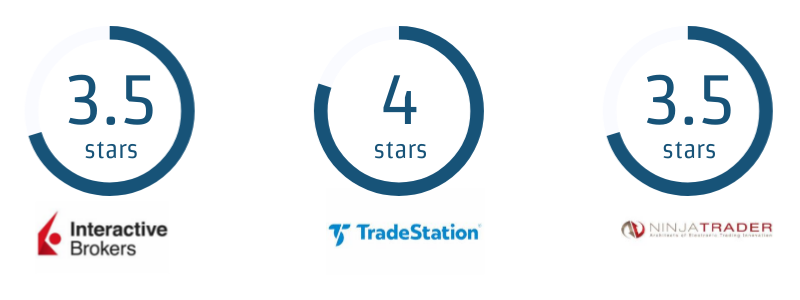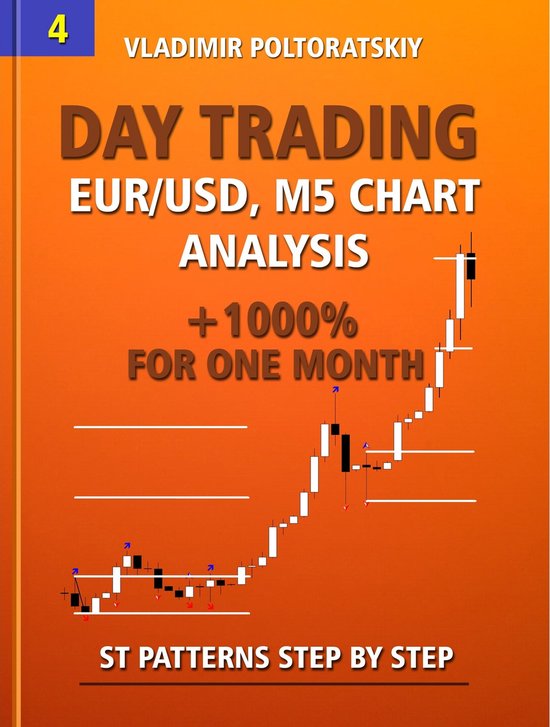
Before you can trade forex, you should understand the basic concepts of currency pairs and leverage. In this article I'll discuss trading platforms, fundamental analysis, and other topics. Let's start with the basics of a long-term position. This means a trader bought a currency expecting it to appreciate in value. They will then sell it back to the market at a price higher than what it was bought for.
Leverage
Forex traders can leverage their capital to trade more forex. Traders can increase their positions by using financial leverage to trade more stocks. This method can be profitable or dangerous. Traders should exercise caution when using it. This article will explain the various types and uses of leverage in Forex trading. Let's start with the definition of leverage.

Currency pairs
Forex trading lets you trade with multiple currency pairs. Each currency pair has its own market price. This is how much you can sell or buy of the second currency for one unit. For example, the market price of EUR/USD is 1.3635, meaning that one Euro will buy $1.3533 of US Dollars. The bid and offer prices are updated in real time, so you can see them in real time when trading currency pairs.
Trading platforms
There are many forex trading platforms. These trading platforms enable you to trade using leverage. Leverage can be up to 1:10 for major currency pairs. Exotic currencies are limited to a maximum 1:20. Your preference will dictate the type of platform that you choose. Some forex trading platforms are better than others. This article will show you how to choose the right forex trading platform.
Fundamental analysis
Fundamental analysis is the study of economic data from different countries in order to trade forex. For example, an individual who is interested in trading Eurozone currencies would want to track Eurozone interest rates, as they would be more relevant for their strategy than U.S. interest rates. In the same way, news releases from Eurozone members will prove to be beneficial as they provide information about the economic health of the countries. Forex traders need to do fundamental analysis if they want to make money.

Technical analysis
Charts can help you analyze the currency pairs' prices if forex trading is new to you. These charts are useful for identifying price trends, setting price objectives, and using stop-loss level. Technical analysis is a method of trading that involves the use of technical analysis. Traders are looking for a return ratio of less than 2 to 1. Candlestick patterns are a great example of eastern technical analysis. They can be used to identify turning points and are very useful in short-term trading. You will find many popular candle designs, such as the morning and night stars, engulfing and dojis.
FAQ
How can I invest in stock market?
You can buy or sell securities through brokers. Brokers can buy or sell securities on your behalf. Trades of securities are subject to brokerage commissions.
Brokers often charge higher fees than banks. Because they don't make money selling securities, banks often offer higher rates.
If you want to invest in stocks, you must open an account with a bank or broker.
If you are using a broker to help you buy and sell securities, he will give you an estimate of how much it would cost. Based on the amount of each transaction, he will calculate this fee.
Ask your broker questions about:
-
The minimum amount you need to deposit in order to trade
-
What additional fees might apply if your position is closed before expiration?
-
What happens to you if more than $5,000 is lost in one day
-
How many days can you maintain positions without paying taxes
-
How much you are allowed to borrow against your portfolio
-
Whether you are able to transfer funds between accounts
-
how long it takes to settle transactions
-
The best way to sell or buy securities
-
How to Avoid fraud
-
how to get help if you need it
-
If you are able to stop trading at any moment
-
If you must report trades directly to the government
-
Whether you are required to file reports with SEC
-
What records are required for transactions
-
What requirements are there to register with SEC
-
What is registration?
-
How does this affect me?
-
Who is required to register?
-
What time do I need register?
Are bonds tradable?
The answer is yes, they are! Like shares, bonds can be traded on stock exchanges. They have been for many years now.
They are different in that you can't buy bonds directly from the issuer. They must be purchased through a broker.
This makes buying bonds easier because there are fewer intermediaries involved. This means you need to find someone willing and able to buy your bonds.
There are many types of bonds. Some pay interest at regular intervals while others do not.
Some pay interest every quarter, while some pay it annually. These differences make it easy for bonds to be compared.
Bonds are great for investing. Savings accounts earn 0.75 percent interest each year, for example. If you invested this same amount in a 10-year government bond, you would receive 12.5% interest per year.
If you were to put all of these investments into a portfolio, then the total return over ten years would be higher using the bond investment.
What role does the Securities and Exchange Commission play?
SEC regulates securities brokers, investment companies and securities exchanges. It enforces federal securities regulations.
What is the difference between stock market and securities market?
The securities market refers to the entire set of companies listed on an exchange for trading shares. This includes stocks as well options, futures and other financial instruments. There are two types of stock markets: primary and secondary. Stock markets are divided into two categories: primary and secondary. Secondary stock market are smaller exchanges that allow private investors to trade. These include OTC Bulletin Board Over-the-Counter and Pink Sheets as well as the Nasdaq smallCap Market.
Stock markets are important because it allows people to buy and sell shares in businesses. The value of shares depends on their price. A company issues new shares to the public whenever it goes public. Dividends are received by investors who purchase newly issued shares. Dividends can be described as payments made by corporations to shareholders.
Stock markets are not only a place to buy and sell, but also serve as a tool of corporate governance. The boards of directors overseeing management are elected by shareholders. Managers are expected to follow ethical business practices by boards. In the event that a board fails to carry out this function, government may intervene and replace the board.
How do I choose a good investment company?
A good investment manager will offer competitive fees, top-quality management and a diverse portfolio. Fees vary depending on what security you have in your account. Some companies don't charge fees to hold cash, while others charge a flat annual fee regardless of the amount that you deposit. Others may charge a percentage or your entire assets.
It's also worth checking out their performance record. If a company has a poor track record, it may not be the right fit for your needs. Avoid low net asset value and volatile NAV companies.
Finally, you need to check their investment philosophy. An investment company should be willing to take risks in order to achieve higher returns. If they're unwilling to take these risks, they might not be capable of meeting your expectations.
Who can trade on the stock market?
Everyone. However, not everyone is equal in this world. Some have greater skills and knowledge than others. So they should be rewarded for their efforts.
There are many factors that determine whether someone succeeds, or fails, in trading stocks. For example, if you don't know how to read financial reports, you won't be able to make any decisions based on them.
You need to know how to read these reports. Understanding the significance of each number is essential. You should be able understand and interpret each number correctly.
You will be able spot trends and patterns within the data. This will help you decide when to buy and sell shares.
And if you're lucky enough, you might become rich from doing this.
How does the stock exchange work?
Shares of stock are a way to acquire ownership rights. A shareholder has certain rights over the company. He/she is able to vote on major policy and resolutions. He/she may demand damages compensation from the company. He/she may also sue for breach of contract.
A company cannot issue shares that are greater than its total assets minus its liabilities. This is called capital sufficiency.
A company with a high capital adequacy ratio is considered safe. Low ratios make it risky to invest in.
Statistics
- The S&P 500 has grown about 10.5% per year since its establishment in the 1920s. (investopedia.com)
- "If all of your money's in one stock, you could potentially lose 50% of it overnight," Moore says. (nerdwallet.com)
- For instance, an individual or entity that owns 100,000 shares of a company with one million outstanding shares would have a 10% ownership stake. (investopedia.com)
- Even if you find talent for trading stocks, allocating more than 10% of your portfolio to an individual stock can expose your savings to too much volatility. (nerdwallet.com)
External Links
How To
How to Invest in Stock Market Online
Stock investing is one way to make money on the stock market. There are many methods to invest in stocks. These include mutual funds or exchange-traded fund (ETFs), hedge money, and others. Your risk tolerance, financial goals and knowledge of the markets will determine which investment strategy is best.
Understanding the market is key to success in the stock market. This includes understanding the different types of investments available, the risks associated with them, and the potential rewards. Once you've decided what you want out your investment portfolio, you can begin looking at which type would be most effective for you.
There are three main types of investments: equity and fixed income. Equity refers a company's ownership shares. Fixed income can be defined as debt instruments such bonds and Treasury bills. Alternatives include commodities, currencies and real estate. Venture capital is also available. Each category has its own pros and cons, so it's up to you to decide which one is right for you.
Once you have determined the type and amount of investment you are looking for, there are two basic strategies you can choose from. One is called "buy and hold." You buy some amount of the security, and you don't sell any of it until you retire or die. The second strategy is "diversification". Diversification means buying securities from different classes. You could diversify by buying 10% each of Apple and Microsoft or General Motors. Multiplying your investments will give you more exposure to many sectors of the economy. Because you own another asset in another sector, it helps to protect against losses in that sector.
Risk management is another key aspect when selecting an investment. Risk management can help you control volatility in your portfolio. A low-risk fund could be a good option if you are willing to accept a 1% chance. On the other hand, if you were willing to accept a 5% risk, you could choose a higher-risk fund.
Learn how to manage money to be a successful investor. Planning for the future is key to managing your money. A good plan should include your short-term, medium and long-term goals. Retirement planning is also included. Sticking to your plan is key! Do not let market fluctuations distract you. Keep to your plan and you will see your wealth grow.